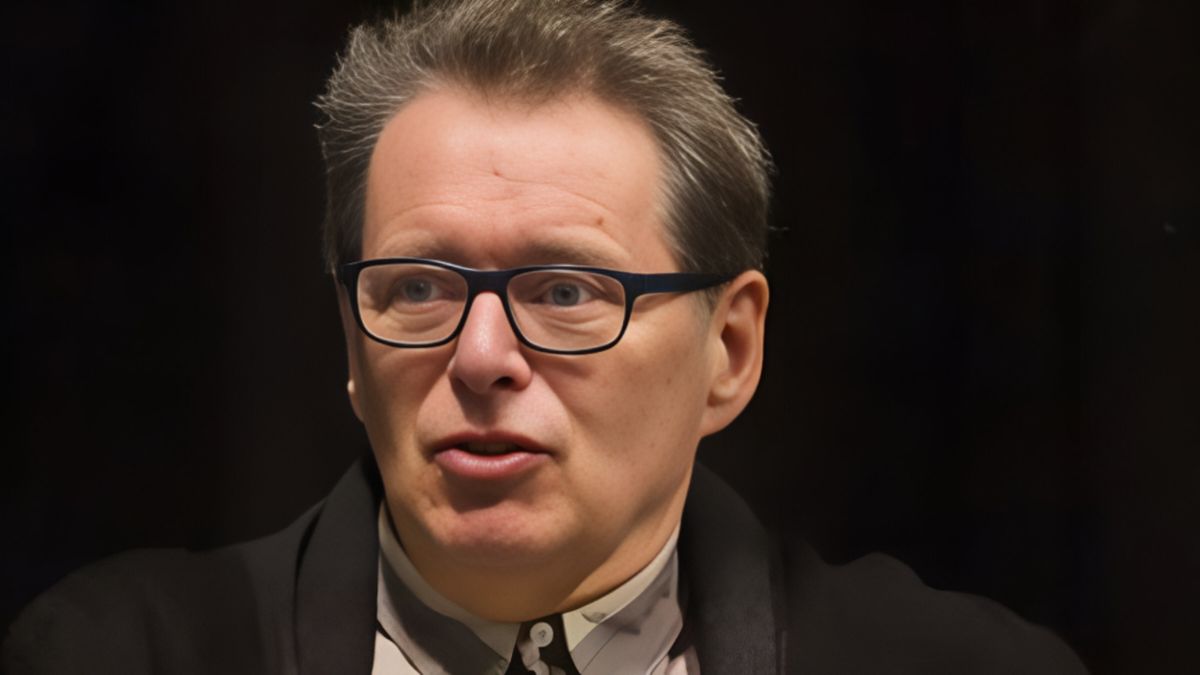George Costigan: A Timeless Talent of British Screen and Stage

George Costigan is a celebrated English actor and writer best known for his iconic role in Rita, Sue and Bob Too and powerful performances in Happy Valley, Line of Duty, and numerous stage productions. With a career spanning decades, he remains a respected figure in British theatre and television.
Introduction
George Costigan is not just an actor—he is a storyteller, a creative force, and a bridge between generations of British drama. Known for his versatility, intensity, and dedication to his craft, Costigan has carved a legacy across stage, film, and television. This article delves into his journey, achievements, and personal philosophy, offering a comprehensive insight into the life and career of one of the UK’s most enduring talents.
Early Life and Education
Born on August 8, 1947, in Portsmouth, Hampshire, George Costigan was raised in Salford, Greater Manchester. His upbringing in the north of England shaped his grounded personality and strong work ethic. He attended Wardley Grammar School and later explored a range of jobs—reportedly over thirty—before he found his true calling in acting.
This diverse work background gave him a unique lens through which he views characters, adding depth and authenticity to his performances. He discovered theatre through local amateur dramatics, an experience that would define his future.
Entry into Theatre
Costigan’s acting journey truly began at the Liverpool Everyman Theatre, a breeding ground for notable British talent. Joining the company in 1974, he quickly distinguished himself with powerful stage performances. Here, he met his long-time partner, writer Julia North. Their shared creative energy would later inspire collaborative projects.
One of his most memorable stage roles was as Mickey Johnstone in Willy Russell’s Blood Brothers. The performance received critical acclaim and demonstrated Costigan’s ability to convey complex emotions with sincerity and skill. Other significant stage roles include John, Paul, George, Ringo… and Bert, Waiting for Godot (as Estragon), and Death of a Salesman (as Willy Loman).
Breakthrough Role: Rita, Sue and Bob Too
In 1987, George Costigan achieved nationwide fame with the film Rita, Sue and Bob Too. Playing the character Bob—a married man entangled in an affair with two teenage babysitters—Costigan brought nuance to a controversial role. His performance was both provocative and layered, capturing the contradictions of a man caught between selfish desire and emotional confusion.
The film became a cult classic and remains a defining moment in British cinema. Costigan’s portrayal of Bob was praised for its realism, humor, and emotional depth.
Television Success
After his breakout film role, Costigan continued to leave a mark on television. His work spans decades and includes some of the most acclaimed British series.
Happy Valley
In Happy Valley, he played Nevison Gallagher, a wealthy businessman entangled in a kidnapping case. Costigan’s performance was understated yet powerful, adding emotional gravity to the gritty crime series.
Line of Duty
In Line of Duty, he portrayed Patrick Fairbank, a retired and disgraced senior police officer. His character was a key figure in the show’s complex narrative about institutional corruption. Costigan infused the role with chilling credibility, elevating the show’s tension.
Other Appearances
Costigan’s television resume is expansive. He has appeared in Emmerdale, The Long Firm, Vera, Gentleman Jack, Holby City, and more. In 2007, he portrayed the villainous Max Capricorn in the Doctor Who Christmas special “Voyage of the Damned”—a role that brought him to a new generation of viewers.
Film Roles Beyond the Breakout
Costigan didn’t limit himself to television and theatre. His filmography includes a wide variety of roles in both indie and mainstream productions.
Some notable films include:
- Shirley Valentine (1989) – as Dougie
- Calendar Girls (2003)
- Garage (2007)
- Hereafter (2010) – a Clint Eastwood-directed drama that featured Costigan in a memorable supporting role
Each of these performances showcases his range—from light-hearted charm to brooding introspection.
A Passion for Writing
In addition to acting, George Costigan has a deep love for storytelling in other forms. He co-wrote an episode of the beloved British sitcom Birds of a Feather with Julia North in 1990.
More recently, Costigan turned to novel writing. In 2017, he published The Single Soldier, the first part of a wartime trilogy. The novel was praised for its emotional resonance and thoughtful storytelling. His writing continues to reflect the same attention to character and detail that defines his acting.
Acting Philosophy
George Costigan approaches acting with humility and respect for the craft. He believes in fully inhabiting his characters—digging deep into their psychology and bringing them to life with honesty. His performances are never showy or overdone; they feel real, grounded, and relatable.
He often talks about the importance of storytelling as a mirror to society, a way of exploring moral ambiguities and human contradictions. This belief is evident in the roles he chooses—often complex, morally gray figures who provoke thought rather than easy judgment.
Personal Life
Costigan shares his life with his partner Julia North, a writer with whom he has collaborated professionally. The couple has three sons. Despite his fame, Costigan lives a relatively private life, focusing on his family and craft rather than celebrity.
He is a lifelong supporter of Everton F.C., a nod to his deep connection with the northwest of England. His loyalty to his roots is mirrored in the working-class characters he often portrays with such depth and authenticity.
Legacy and Influence
Few actors manage to remain relevant across multiple decades and platforms, but George Costigan has done exactly that. His body of work is a testament to consistency, talent, and artistic integrity.
He is admired not only for his acting but also for his contributions to British theatre and literature. Younger actors often cite him as a role model for how to build a long and meaningful career without succumbing to typecasting or industry pressures.
Costigan’s performances continue to resonate because they are built on truth, empathy, and an unwavering commitment to the story being told.
Future Prospects
Even in his seventies, George Costigan shows no signs of slowing down. He continues to act, write, and inspire. His recent works demonstrate a creative spirit that’s still evolving—never content to rest on past achievements.
With more novels in the pipeline and potential stage and screen roles ahead, fans and critics alike await his next moves with eager anticipation.
Conclusion
George Costigan is more than an actor; he is a craftsman of the human experience. Whether on screen, stage, or in print, he tells stories that matter—stories that reflect who we are and who we might become.
In an industry that often favors flash over substance, George Costigan stands out as a beacon of depth, intelligence, and emotional honesty. His legacy is not just in the roles he has played, but in the generations of actors and audiences he continues to move, challenge, and inspire.



